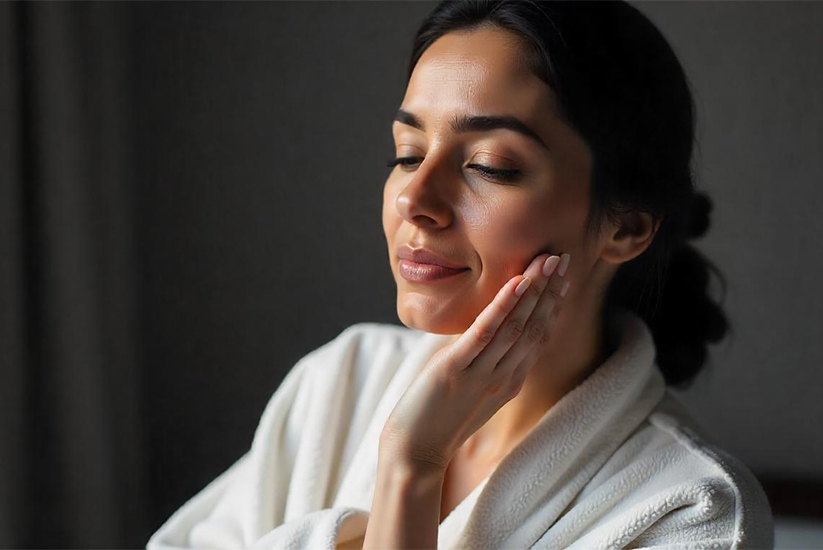PRP Face Treatment Aftercare: Tips for Best Results in the Indian Climate
- April 22, 2025
- Posted by: admin

Often referred to as the “vampire facial”, platelet-rich plasma (PRP) face injections are a safe and natural method for rejuvenated skin. Gain a youthful appearance and confidence with this treatment option, and if you have already done that, don’t forget the aftercare.
Aftercare is essential for better healing and desired results. Maximise the effectiveness of the treatment with better aftercare and prevent your skin from complications. Do you have questions about the aftercare of PRP face treatment, especially in the Indian climate? We’ve got you. Maybe here are some tips waiting for you in this guide.
PRP Face Treatment: Taking Care in the Indian Climate
Taking care of skin after PRP face treatment is essential, and there are some things to remember when stepping out from the house or doing your regular skincare routine. Here are the tips you’ve been looking for:
Sun Protection
Indian climate is popular for its intense sunlight, making it essential to wear sunscreen and cover yourself from the harmful UV rays. If you are in the recovery phase after PRP treatment, ensure you are getting the right and better sun protection.
Sun exposure can interfere with the healing process and potentially lead to hyperpigmentation. Use a broad-spectrum sunscreen with at least SPF 30 every morning or every time you step out. Ensure reapplication every two hours for continuous and better protection from the sun. Wear long sleeves, pants and a hat to shield your skin every way possible from the sun.
Skincare
If skincare is part of your lifestyle so here are some important considerations about skincare after PRP face treatment:
1. Promote gentle cleansing and include a gentle, non-irritating cleanser with lukewarm water to clean your face.
2. Avoid rubbing or scratching the skin; instead, gently pat your skin dry. Your skin is in the recovering phase, so let it be gentle as this can prevent your skin from irritation and a smooth recovery will be experienced.
3. Protect your skin from the sun by avoiding direct sunlight and applying broad-spectrum sunscreen with at least SPF 30, especially if you must go outdoors. Reapply sunscreen every 2 hours if you are outside.
4. Hydration is key, so keep your skin hydrated by using a gentle, nonchemical, organic cream. Ask your healthcare professional for better hydrated products you can use.
5. Say NO to any exfoliants, harsh skincare products, or makeup for at least 72 hours.
For an exercise routine, it is better to avoid activities and exercises that can heat the skin. Hot tubs, steam rooms and saunas can wait till the recovery period.
Diet and Hydration
Maintaining diet and hydration are essential parts of the recovery period. They are crucial for optimal healing and to support the treatment’s effects. A balanced diet rich in nutrients and a well-hydrated routine are what people need to focus on.
Drinking plenty of water helps promote circulation, which is essential for delivering nutrients to the treated area and supporting the healing process. A diet rich in nutrients like vitamin B9 can aid in cell growth and reproduction. Caffeine can dehydrate the body and interfere with the healing process, so it’s best to limit caffeine intake. Certain supplements like fish oil or Ultragi Replenish may help reduce inflammation and support healing. It is better to have a diet plan from a certified dietician or a healthcare expert.
Important Considerations
Here are some things that we must shed light on, including:
1. Refrain from alcohol and smoking for at least 3 days after the treatment, as they can negatively impact healing and platelet function.
2. Avoid strenuous exercise, saunas, or hot baths for at least 48 hours to prevent heat and sweat from irritating the treated areas.
3. Attend all scheduled follow-up appointments with your healthcare provider for better monitoring of the treated area. They may recommend lifestyle changes and promote the healing process smoothly.
4. To avoid inflammation and irritation, it is better to avoid makeup or use gentle products on the skin.
5. If you are taking blood thinners, then your healthcare professional might recommend stopping using them before the procedure. Also, do not use them even after the procedure for certain time as these can interfere with the blood clotting process and potentially cause complications.
It is always safe to have an expert on your side. For your PRF face treatment and aftercare in the Indian climate, it is essential to get advice from an expert. They will provide specific instructions based on your individual needs and the type of PRP treatment you received.
